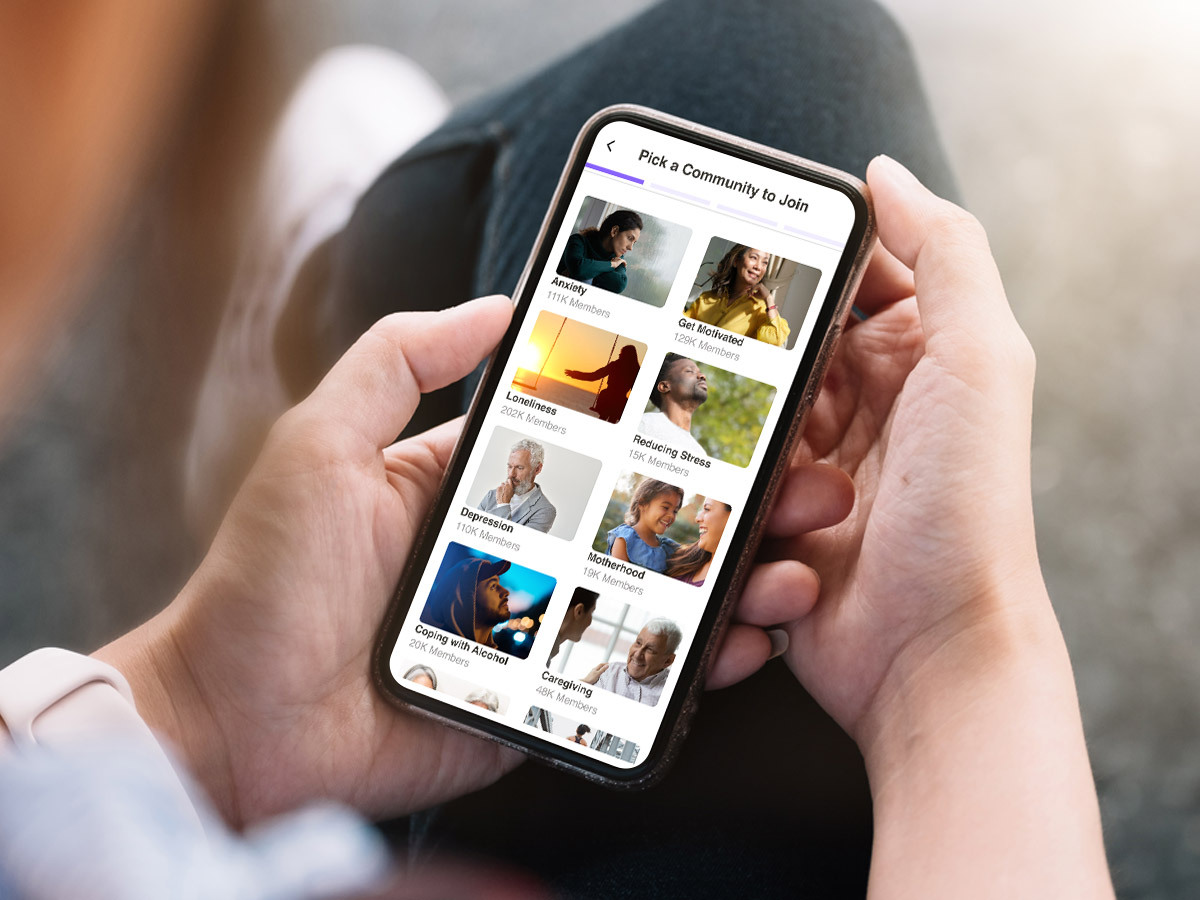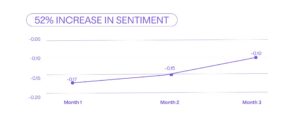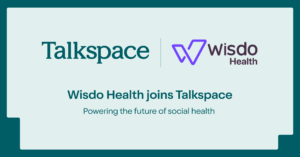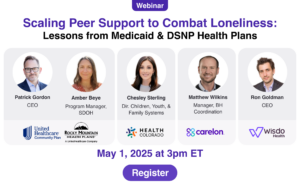NEW YORK, July 30, 2024 — Wisdo Health, a leading provider of AI-assisted online peer support and social health, today announced a groundbreaking study published in JMIR Formative Research. The study highlights the significant impact of Wisdo Health’s solution on improving mental health outcomes, addressing equity, and reducing health costs among vulnerable adults with high rates of loneliness and symptomatic mental illness.
This study builds upon prior published research demonstrating that vulnerable Medicaid and D-SNAP Medicare Advantage members benefit from peer support through Wisdo.
Addressing a Public Health Crisis
Loneliness currently affects 50% of U.S. adults, with rates exceeding 75% for non-White populations and 72% for Medicaid members. In 2023, U.S. Surgeon General Dr. Vivek Murthy declared loneliness and social isolation a public health crisis, highlighting research that shows that loneliness has the same risk of increased mortality as smoking 15 cigarettes a day. Loneliness not only impacts individual health but also economic costs, with an estimated $1,644 more spent annually on socially isolated individuals.
Key Findings of this New Study
- Significant Reduction in Loneliness and Depression: Participants experienced an 11.1% reduction in loneliness (UCLA-3) and a 28.3% decrease in depression symptoms (PHQ-2), both statistically significant (P<.001).
- Improvement in Quality of Life: There was a 26.2% reduction in the number of monthly mentally unhealthy days reported by participants (P<.001).
- High Engagement Rates: Participants visited the Wisdo digital peer support platform an average of 8 times per month. Engagement rates were 84.4% in the second month and 70.6% in the third month, significantly higher than the industry average of 4% in the second month for mental health digital apps.
- Equity: Perhaps the most important finding of this study, engagement rates and improvements in mental health, loneliness, and quality of life were consistent across all groups, including all genders, races, and socioeconomic groups (all P<.001). Notably, Hispanic/Latinx participants reported 6.7% and 25.6% improvements in loneliness and depression, respectively, while Black/African American participants reported 15.7% and 27.3% improvements in loneliness and depression.
- Cost Reduction: The reduction in mentally unhealthy days resulted in an estimated annual medical cost reduction of $1,025 per participant, based on prior research associating each unhealthy day with an incremental cost of $15.64 per member per month.
Study Design and Participant Demographics
The study included 1,104 adults from Colorado recruited via social media campaigns in 2022. Among them, 243 participants reported significant loneliness (UCLA-3 score >7) and/or mental health symptoms (PHQ-2 score >4) and completed at least one follow-up survey, qualifying for inclusion.
Participants were diverse, spanning various age groups, genders, ethnicities, and social vulnerability:
- Age: Average age 43.2 yrs; 47% aged 18-39, 35% aged 40-59, and 18% aged 60+.
- Gender: Male (55.7%), Female (40.6%), Nonbinary (3.4%).
- Ethnicity: Hispanic/Latinx (15.4%), Black/African American (8.3%), White (69.7%), Other (6.7%).
- Social Vulnerability (CDC measure): 75.1% had medium or high social vulnerability scores.
Participants completed validated surveys at baseline and at 30, 60, and 90 days into the intervention.
“This study underscores the potential of digital peer support to effectively and equitably address loneliness and mental health challenges among a diverse and vulnerable population experiencing severe loneliness and symptomatic mental illness in a scalable and cost-effective manner, ” said Dr. Dena Bravata, the study’s lead author.
The study was funded and conducted in collaboration with Peer Assistance Services, a Colorado nonprofit dedicated to the prevention and intervention of substance use and mental health concerns.
For more details on the study, you can read the full publication in JMIR Formative Research here.
About Wisdo Health
At Wisdo Health, our mission is to eradicate loneliness through evidence-driven and AI-assisted peer support and companionship, combining the power of a supportive community, predictive recommendation engines, and the science of social health. We work with health plans by offering their members 30+ peer communities covering mental health, physical health, life stressors such as caregiving, and social determinants of health. Participants can also access group coaching to improve their social health, and engage in monthly check-ins. To date, over 500,000 adults 18-80 have engaged with Wisdo. Multiple empirical studies have proven Wisdo’s efficacy in driving significant clinical outcomes and reduction in medical costs.





